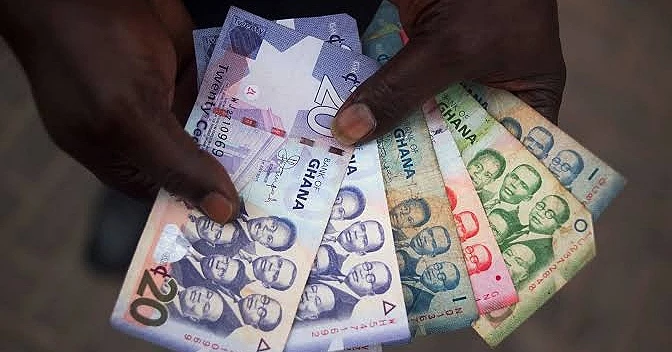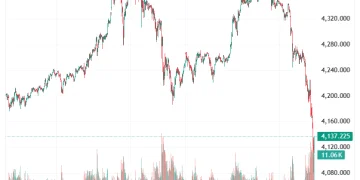Hands Off Our Cedi! Ghana’s Cedi Reset Will Be Written in Accra, Not Washington!
The Bank of Ghana’s recent approach to forex sales involves heavy intervention in the foreign exchange market, including the sale of $1.4 billion during Q1 2025, buoyed by strong inflows from gold, cocoa, and remittances. This strategy has propelled the cedi to become the world’s best-performing currency so far in 2025, but critics argue the gains rest on fragile foundations. The IMF and market analysts warn that heavy reliance on commodity windfalls and large-scale interventions risks creating artificial strength, distorting market pricing, encouraging parallel exchange rates, and draining reserves if inflows weaken or external obligations rise.
While I respect the textbook models and criticisms offered by the IMF and other Western institutions, I urge the Governor of the Bank of Ghana to remain resolute in his decisions. Over the years, we have heard similar advice, yet it has produced little that truly fits the unique context of Ghana’s economy. Many countries have successfully strengthened their currencies using approaches very different from the traditional IMF prescriptions. For instance, China’s central bank manages the yuan with large-scale dollar purchases supported by over $3 trillion in reserves to maintain export competitiveness; Switzerland’s central bank pegged the franc to the euro between 2011–2015 to prevent harmful appreciation; Japan regularly sells billions of dollars to weaken the yen, as seen in its 2022 intervention, leveraging deep capital markets; India’s Reserve Bank smooths rupee volatility backed by more than $600 billion in reserves; and Singapore’s central bank actively manages its currency within a guided band, sustained by strong surpluses. These examples demonstrate the importance of designing Ghana-specific models and operational techniques to manage the cedi, rather than relying solely on external frameworks that may not fit our economy.
I propose that Ghana prioritize domestic stability and economic sovereignty through a genuinely homegrown strategy. This approach would have three core pillars: first, a managed float with strategic central bank interventions to prevent severe over-or undervaluation of the cedi; second, a shift toward productive-led economic diversification through value addition, local manufacturing, and import substitution to reduce reliance on primary commodity exports; and third, the adoption of a self-reliant fiscal policy supported by aggressive domestic revenue mobilization, diaspora-specific investment instruments, and an expanded sovereign wealth fund to build financial resilience and minimize dependence on foreign borrowing or bailouts. These strategies are situated in that fact that Ghana’s current gross international reserves is said to be at $11 billion, covering 4.8 months of imports. While this is strong, dependence on commodity earnings for forex interventions will leave the cedi vulnerable to external shocks, underscoring the need for transparent, market-driven policies to safeguard currency stability and reserve sustainability. In this context, the Bank of Ghana’s recent forex sales represent a correct and necessary step. Academics and critics should refrain from rigid textbook arguments and allow policymakers to “cut the cloth” according to Ghana’s material realities. After all, many of these classical finance rules were created by colonial-era thinkers without consideration for developing economies like ours.
To illustrate these neocolonial issues for example the absurdity of Bar Council of England and Wales and the Commonwealth Lawyers Association wrote to authorize a sovereign country like Ghana on what to do with their justices’ system. But the same cannot be said about United States when the President Donald Trump announced firing Federal Reserve Governor Lisa Cook, Can this association write to America government and asked for reinstalment? The answer is big No because they don’t see America as “Slaves” I think that the governor and the finance ministry need to be supported in all manner to help sustain and strengthened our cedi. I know in the short run, interventions can provide a much-needed lifeline, prevent a freefall of the cedi and provide a semblance of stability but if we In the long term, however, a policy of continuous forex sales to defend the cedi is need to be enacted and we must get our business community to support such policies. Ghana must assert its independence in economic decision-making. The Governor of the BoG and the Ministry of Finance deserve full support to sustain and strengthen the cedi. The business community must play its role by repatriating export proceeds, pricing in cedis, and supporting local value chains. It is remarkable that some academics criticized the recent cedi appreciation simply because it did not conform to outdated textbook models. Ghana’s post-COVID economy, now influenced by AI and digital systems, demands modern, practical approaches, not old theories. Equally important is combating misinformation. Some media reports claimed that FinTech’s and remittance providers were withholding over $10 billion in remittances, allegedly draining forex. The BoG swiftly rejected this, citing World Bank data showing remittances reached $6.65 billion in 2024, far exceeding FDI. All inflows pass through regulated partner banks, and FinTechs are legally barred from holding outward-facing forex accounts. Such rapid clarification is essential to prevent speculation that can destabilize the cedi.
Ghana can manage and strengthen the cedi independently of IMF or World Bank prescriptions through implementation of a market-driven exchange rate system, gradual reforms, robust fiscal discipline, and strong institutional frameworks tailored to its economy. My emphasis is on homegrown reset strategy that can address FX leakages, deepen local demand for cedi assets, and build resilient export earnings. Quick wins currently may include formalizing small-scale gold exports, ensure timely repatriation of cocoa and oil proceeds, and introduce transparent FX auction rules to curb speculation. Medium-term measures should develop retail inflation-linked cedi bonds, hedging instruments, and predictable fuel pricing without draining reserves. The second strategy should involve transitioning to an independently floating regime with targeted, auction-based interventions, enabling genuine price discovery while limiting politicization of currency movements. Tight fiscal management, local investment, and transparency will anchor macroeconomic stability.
Citizens must also play a vital role by reducing foreign currency demand, promoting local products, saving in domestic assets, and participating in communal investment funds that channel resources into productive sectors. The business community must drive value addition in exports, build resilient supply chains, advocate for regulatory reforms, and embrace digital solutions that enable trade and finance in cedis while boosting non-traditional exports while our Political elites and policymakers enforce accountability, reduce wasteful spending, support the rule of law, and prioritize confidence-building policies such as empowering local government financing, flexible bond markets, stabilization and sovereign wealth funds, and export diversification, while avoiding short-term, populist currency interventions. Together, these coordinated efforts can reset Ghana’s monetary regime, build reserves organically, attract sustainable investment, and achieve lasting currency stability and economic progress, fully aligning with President Mahama’s “Resetting Ghana” agenda by prioritizing domestic stability and economic sovereignty without the IMF.
About Author
Dr. Bernard Tetteh-Dumanya is a distinguished Ghanaian financial economist, entrepreneur, finance and development strategist, and academic leader with over two decades of experience in investment management, institutional banking, and large-scale project financing across Ghana and West Africa. As CEO of TD Afrika Grupp Limited, he has built and scaled a multinational consultancy delivering innovative solutions in finance, environmental economics, and agricultural development, while leading capital-raising initiatives for multi-million-dollar infrastructure and entrepreneurial projects. He has held senior roles in asset management, banking, and training institutions, including SIC Financial Services, UBA Ghana, and EMPRETEC Ghana Foundation, successfully optimizing financial operations, restructuring organizations, and empowering SMEs. Academically, he has served as Vice-President and Dean at multiple universities, overseeing program development, accreditation, and institutional growth. Dr. Tetteh-Dumanya is also a published author on topics ranging from portfolio management to economic policy, with a proven record of advancing sustainable agriculture, fostering public-private partnerships, and mentoring emerging business leaders.









I agree totally with you. We need to do what suits Ghana under our unique economic environment. IMF diagnostics have always been self fulfilling. So is Fitch, Moody’s and the World Bank. Their forecasts has always been a moving forecast every two weeks it changes.
Incidentally their predictions/ forecasts is always to their benefit.